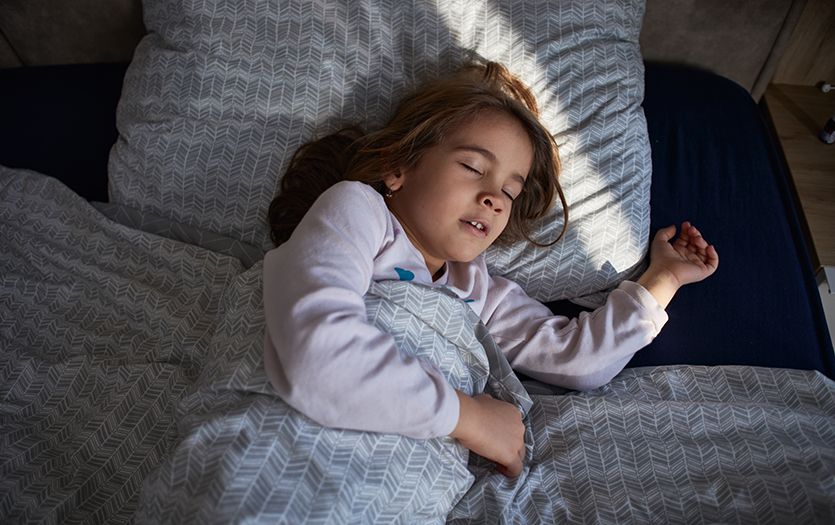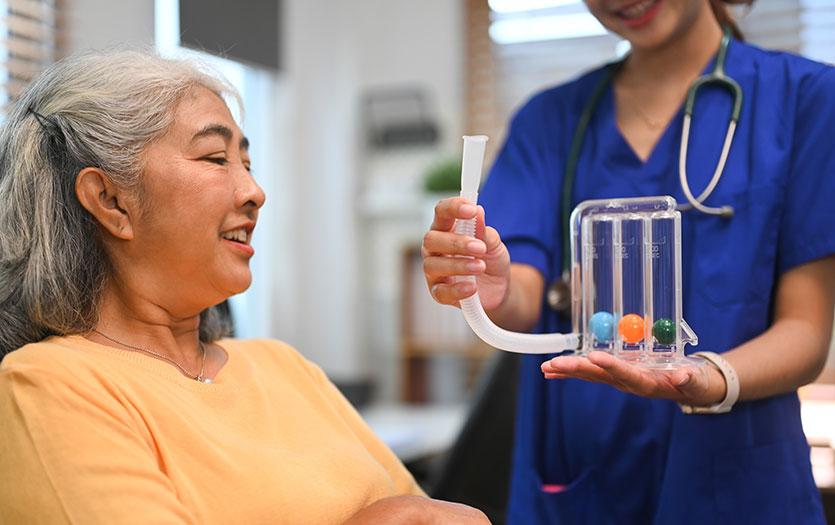
This post was written by Rafael Nunez, MD, PPG – Pediatrics.
By 4 years of age, most children can control their bladder during the day, but nighttime bladder control sometimes develops later, with most kids being able to stay dry by 5-7 years old. Bedwetting, or enuresis, defined as an episode of incontinence while sleeping, in children 5 years of age and older, is a very common problem.
How prevalent is bedwetting?
The National Kidney Foundation reports that about 5-7 million children in the United States wet the bed at night. It is estimated that about 15% of children are incontinent at night by the age of 5 and 1-3% continue to be incontinent during their teenage years.
Are there different kinds of bedwetting?
Enuresis can present in two categories:
Monosymptomatic enuresis: When the child has episodes of wetting the bed, without other symptoms or any history of bladder problems. This is divided into two subcategories:
- Primary enuresis present in children who have never achieved control of their bladder during sleep. This is the most common presentation.
- -Secondary enuresis presents with episodes of nighttime incontinence after the child was able to have control of their bladder for at least 6 months. Secondary enuresis usually arises during periods of increased stress for the child, such as loss of a loved one, divorce, changing schools, moving, birth of a sibling, etc.
Non-monosymptomatic enuresis: When the child has episodes of bedwetting that are associated with other symptoms, such as:
- Changing in frequency
- Incontinence during the day
- Straining
- Pain with urination
- A weak urinary stream
- Dribbling after urinating
- Sensation that they cannot empty the bladder completely
What can parents do to help their child struggling with bedwetting?
It’s important to understand that managing bedwetting requires a lot of patience, and that the child and the family need to be motivated and onboard. This can take months and can have periods of success and failure. It’s all part of the normal process.
Parents should remind the child that this is not their fault. Also, remember that the child probably is already anxious and embarrassed about wetting the bed, so caregivers should avoid showing anger and frustration. Avoid making the child feel guilty, punishing them for having accidents and allowing others to make fun of the child.
There are multiple interventions that parents can use to help their child, including:
- Make sure that your child is urinating regularly during the day.
- Make sure that your child urinates right before going to bed.
- If your child wakes up in the middle of the night, encourage them to use the toilet.
- Avoid drinks that can cause your child to urinate more, like sugary or caffeinated drinks.
- Make sure that your child is drinking throughout the day. Most of the fluid intake should be during the morning and early afternoon. Avoid drinking too much right before bedtime.
- Using diapers or pull-ups at night might seem helpful to avoid wetting the bed and clothes, but this can affect your child's motivation to want to get up from bed and urinate in the toilet. These products can also make them feel embarrassed, especially older children. It’s better to use bed protection or disposable waterproof pads. Reserve diapers or pull-ups for special situations, such as overnights with family or friends.
- The next day, after your child has an accident, involve them in the process of changing clothes and changing/washing the sheets. Also make sure that they take a shower to avoid smelling like urine.
There are other interventions that usually require assistance and expertise from your doctor. These can include the use of a bedwetting alarm and/or medications and are indicated for children who fail to show improvement after a few months of trying the above-mentioned interventions or if bedwetting starts to become a problem for the family or the child. For example, if the child starts to have self-esteem issues or is unable to participate in activities like going to camp or having sleepovers.
How to talk to your child about their bedwetting
Remind your child that this is out of their control, and that it happens to other children as well. Reassure them that this is a phase and they will eventually outgrow it.
Can bedwetting be an indicator of other health issues?
Even though bedwetting is a frequent occurrence, usually not associated with any correlated problems, sometimes it can be associated with other conditions, including:
- Genetics
- Neurodevelopmental issues like autism, ADHD and/or intellectual disability
- Stress
- Sleeping issues
- Constipation
- Bladder dysfunction
- Kidney disease
- Urinary tract anomalies
- Neurologic disease, such as seizures and spinal cord problems
- Diabetes mellitus
- Diabetes insipidus
- Pinworms
When to call a doctor
It’s important to discuss bedwetting with your doctor at any time if you have concerns. They can provide you with the reassurance or help you identify signs or symptoms that would require further evaluation and management.
Talk to your doctor if your child has been previously dry at night for at least 6 months and starts presenting episodes of bedwetting, or if they present with any of the following symptoms:
- Changes in frequency
- Incontinence during the day
- Straining with urination
- Pain with urination
- A weak urinary stream
- Dribbling after urinating
- A feeling that they cannot empty the bladder completely
- Incontinence associated with activities like playing, running, coughing
- Changes in personality
- Changes in walking/gait
If you need help finding a family doctor or pediatrician, we can help. Contact our Access Center at (877) PPG-TODAY or (877) 774-8632.



